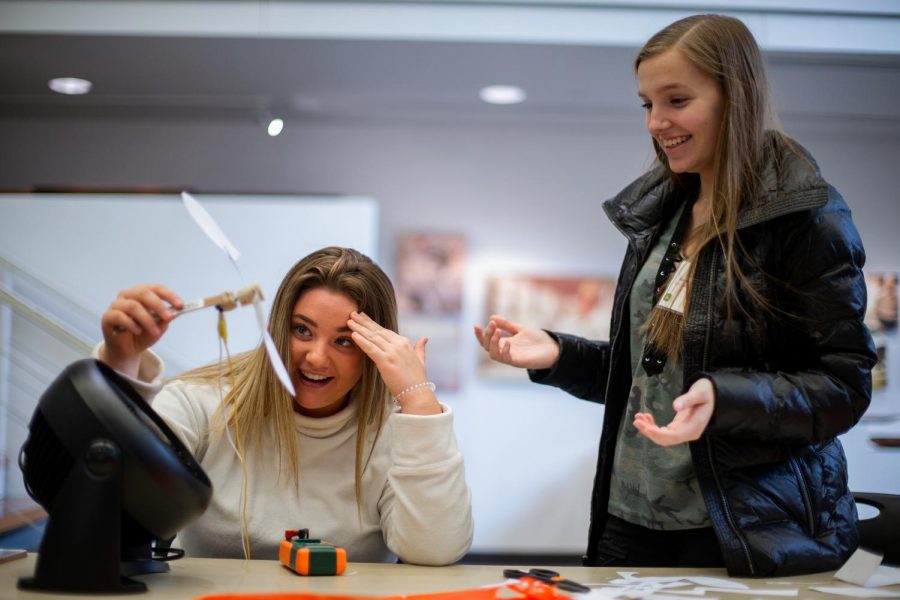Platteville hosts Women in STEM Career Day
High school students from local area gather to explore STEM opportunites
This Tuesday, John Deere sponsored the Woman in STEM career day on campus. This event focuses on providing high school girls with information on STEM (science, technology, engineering and mathematics). The high school girls were able to learn from professionals, including faculty and students about what STEM careers are available after college.
Eighteen different high schools and 15 school groups were present, making it 160 girls in total at Career Day. Forty of those girls came from Platteville High School right here in town. John Deere has been the main sponsor for this event. Tammy Salmon-Stephens, director of Student Success Programs for the College of EMS, said this was “about the 30th time” this event has been held and noted that John Deere was a sponsor at the very beginning.
Rod Robson, a high school science teacher from Cuba City, brought nine students with him. He mentioned that the program was a “good opportunity for girls to be exposed to different STEM fields.”
The Dean of the College of EMS, Dr. Molly Gribb, opened the event by explaining what STEM can do for young high school girls before, during and after college. Midway through the event, everyone gathered back in Velzy commons to listen to the keynote speakers, the prize drawing and a Woman in EMS presentation by John Deere.
The keynote speaker was chemistry major Rachel Eckmann. Eckmann said she wanted to stress to the high school girls that there is more to STEM majors than what meets the eye.
“Being a chemistry major doesn’t always mean wearing a white lab coat and goggles, she said. “It’s so much more. For me, I really do believe that having a background in Chemistry and Forensics Investigation also has helped improve my communication and writing skills.”
“I think that I relate to these girls because middle and high school is when I really started to develop my interest in forensic investigation and chemistry.
“In middle school, we had a forensic investigation unit where we had to solve a crime by analyzing different types of evidence. In high school, I started to learn about the periodic table and how chemistry can be used to make up everything in our lives around us. But when I first transitioned to college, one of the most overwhelming lessons that I learned was that the number of possibilities of career paths I could follow was not as clear cut as I had believed it to be,” Eckmann said.




